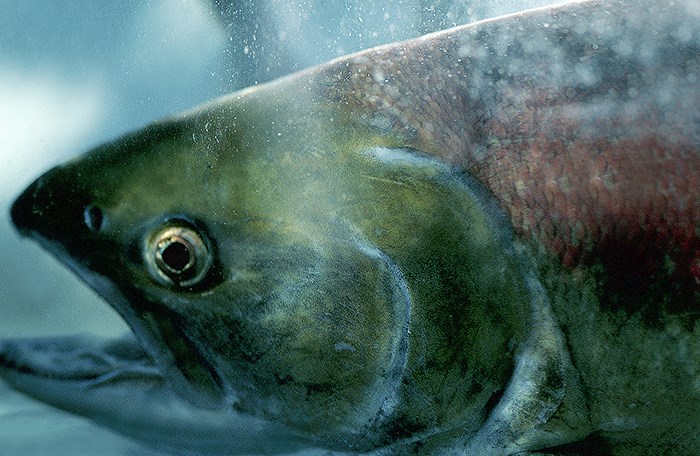Everyone — well those in the media and on social media anyway — is watching for an apocalypse to prove that climate change is truly happening.
The truth is more subtle.
While this year's strange weather patterns and unusual wildfire season are upsetting, scientists say we should keep an eye on long-term trends, not the short-term aberrations.
One area where this is particularly evident is in the study of salmon habits. Scientists have found that trends of ocean warming and cooling can mask the effects of climate change, with a cooler phase starting now. But at the same time, scientists are also noticing some salmon species are moving further north, even into Alaska, and some Fraser River salmon are returning early, which can affect spawning survival.
Another report issued this week found that changes in ocean physics and chemistry brought on by climate change will eventually kill off some salmon, reducing the food fishery and making salmon even more expensive than it is now.
While there are those who say we can't afford to eat salmon anyway, the warning should be heeded because of the importance of the iconic fish to the ecosystem.
Salmon, including chum and coho that we see return to the Tri-Cities each year, are a keystone species, critical to the survival of other forms of life. They fertilize our forests, feed wildlife and, like the proverbial canary in a coal mine, can inform us about our own future by changes in their habits.
Locally, we have seen Port Coquitlam's Hyde Creek drying up and coho smolts dying in overheated water or on the shoreline. But the bigger picture is the long-term trend. If the oceans are becoming too warm for salmon and the fish are returning early, Tri-City creeks such as Hoy/Scott, Noons, Mossom and Hyde will need to be maintained as cool, protected safe havens, and the Coquitlam River needs to have enough water flow to be safe for fish.
How can we help? We can conserve water and electricity so more water can be released in the river. We can stop pouring noxious substances down storm drains and discourage development from being placed too close to creeks so trees and foliage, which moderate temperatures and water flows, and feed rivers and creeks with their nutrients, are preserved.
It may be smokey and hot but that doesn't mean the apocalypse is here. If we learn nothing else from this overheated summer, we should at least learn to be more sensitive and protective of our natural surroundings.



